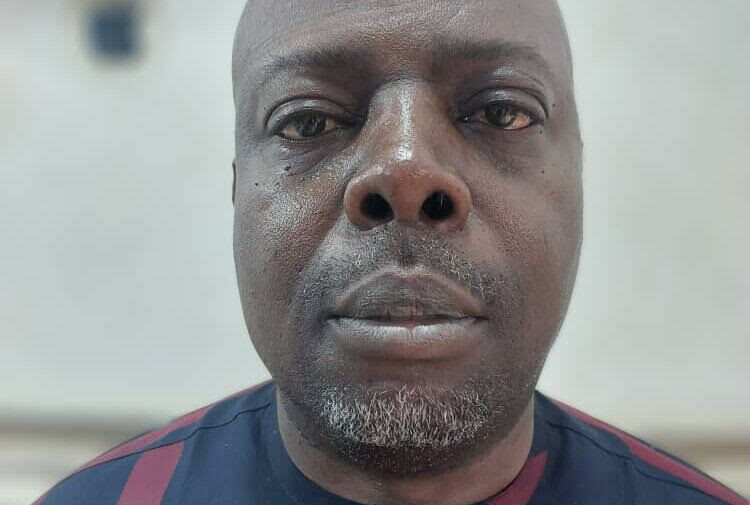Terrorist financing has been described as an enabler and driver of terrorism because it provides the resources needed for the sustenance of the operations of terrorist organisations.
The assertion was contained in a lecture delivered at a 2-day Training Workshop “On Preventing Terrorism Financing and Violent Extremism,” a project financed by GIABA-ECOWAS in collaboration with the Civil Society Legislative Advocacy Centre (CISLAC), held in Yola on Friday, by Professor Jude Momodu, a specialist in Peace and Security Studies at the Centre for Peace and Security Studies, Modibbo Adama University of Technology, Yola, Adamawa State.
According to him, “every organised illegal activity, be it terrorism, insurgency, militancy, or banditry, requires funding.”
He stressed that “funds are needed to recruit members, purchase equipment, pay salaries and intelligence information, logistics, support for cells, upgrade equipment, support their members, and plan and execute attacks.”
The university lecturer added, “Funding is the livewire of all organised illegal or illicit activity. Financing terrorism facilitates a steady flow of funds to terrorist organisations. Terrorists and terrorist organisations use both legitimate and illegitimate means to raise funds.”
He further noted, “In Nigeria, terrorism financing is a very troubling concern because it has been facilitating the operations of terrorist groups such as the Islamic State in West African Province (ISWAP), Boko Haram terrorists in the north-eastern region, including the Ansaru terrorist group operating in the North West and North Central regions, as well as the Indigenous People of Biafra (IPOB).”
On sources of funds for ISWAP, he explained that an ICG (2019) report noted ISWAP’s practice of encouraging traders to conduct business in their controlled areas, requiring them to bring goods in high demand for sale to members and local civilians.
This economic activity, he noted, has buoyed the areas controlled by the group. “For instance, in their 2021 report, ISWAP announced it had collected N51,865,000 (about $156,985) in Zakat payments from their controlled area within just two months (see Adebajo, 2021; Al-Tamimi, 2021).”
“Raising this amount of money within two months in their controlled area suggests that the wealth of those paying Zakat to ISWAP must be substantial—around N2 billion,” he added.
However, he emphasised that any effective effort to combat terrorism must involve disrupting the flow of funds to these organisations.
He stressed that while cutting off terrorism financing sources may not eradicate terrorism entirely, it can significantly reduce the frequency and scale of attacks carried out by terrorist groups, as every successful terrorist activity requires funding, no matter how minimal.
The Nigerian government has been actively pursuing measures to curb the activities of terrorist groups through legislative means, utilising the law to address their funding sources.
“Despite these efforts,” he remarked, “more needs to be done to effectively sever the various financial sources available to terrorist organisations in Nigeria.”
Regarding methods used by terrorist groups and their financiers to move money, he pointed out that the formal banking system (bank transfers) remains the most reliable and efficient means of international fund movement, yet it remains vulnerable to terrorism financing.
According to him, sympathisers of a terrorist group can open savings accounts and provide the debit card associated with the account to a member of the terrorist organisation to enable him or Boko Haram to have access to cash, while the use of proxy accounts belonging to friends, relatives, sympathisers, and permission to use accounts is subtly obtained in such a way as not to raise suspicion.
On methods of moving money, he mentioned informal/Hawalas, stressing that Hawala is a traditional informal system of transferring funds without the use of banks, widely used by terrorist groups in Nigeria to move funds across borders.
He added that a chit or promissory note is exchanged between two hawaladars, and it is as valuable as cash or other traded commodities because the trust between the two parties guarantees its value.
The system originated several hundred years ago in China under the name of Feng Chin, or “Flying Money.” Today, it is predominantly based in Pakistan and India, but there are hawala dealers around the world, including Nigeria.
It is an informal system based on trust and battering. No tax record or paper trail. Money transfer without money movement.
Being specific on enablers and drivers of terrorism financing in the North-East of Nigeria, the University Don said that there are many factors that serve as enablers or drivers of terrorism financing in Nigeria.
He said that in order to raise, move, and distribute funds and carry out terrorist activity, terrorists and terrorist groups are exploiting existing political, socio-economic, and security challenges, such as Nigeria’s porous international borders, with multiple fial and unfial entry points, and an unregulated and highly differentiated informal financial and economic sector, which have continued to enable terrorism financing.
Also, terrorists and criminals take undue advantage of the cash-based economy in Nigeria to move resources to finance terrorist and criminal activities, stressing that preventing illegal use of the cash-based economy remains the most effective and practical way to combat, disrupt, and curtail terrorist financing.
He added that the movement of money through the Hawala system, which is an informal way of transferring money without the actual or physical movement of cash from one place or person to another (Bowers, 2009), is based on a system of money lenders or brokers known as Hawaladars (Bowers, 2009).
According to him, in August 2014, an independent Australian hostage negotiator for the Nigerian government concluded that one official from the Central Bank of Nigeria processed transactions on behalf of Boko Haram, allowing them to conceal their source of funds and to evade scrutiny during arms purchases (Varghese, 2014).
This realisation is what forced Nigeria to implement the strict Know Your Customer (KYC) policy to try to cover the gap being appropriated by such malign non-state actors.
Some of the causes that he identified include poverty, deprivation, violence, and politics, which boost the terrorist financing cycle.
ALSO READ THESE TOP STORIES FROM NIGERIAN TRIBUNE
